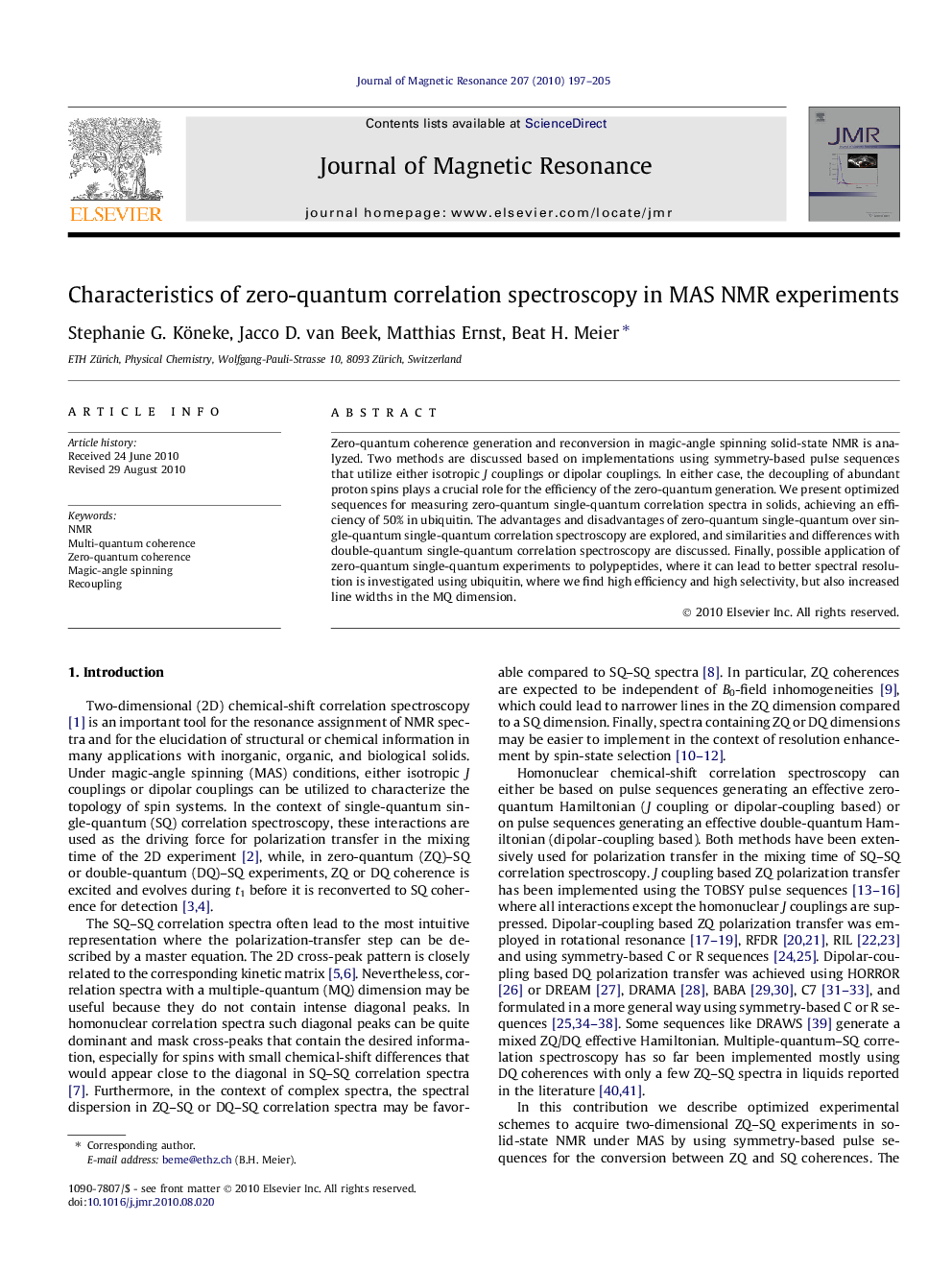| Article ID | Journal | Published Year | Pages | File Type |
|---|---|---|---|---|
| 5406448 | Journal of Magnetic Resonance | 2010 | 9 Pages |
Abstract
Zero-quantum coherence generation and reconversion in magic-angle spinning solid-state NMR is analyzed. Two methods are discussed based on implementations using symmetry-based pulse sequences that utilize either isotropic J couplings or dipolar couplings. In either case, the decoupling of abundant proton spins plays a crucial role for the efficiency of the zero-quantum generation. We present optimized sequences for measuring zero-quantum single-quantum correlation spectra in solids, achieving an efficiency of 50% in ubiquitin. The advantages and disadvantages of zero-quantum single-quantum over single-quantum single-quantum correlation spectroscopy are explored, and similarities and differences with double-quantum single-quantum correlation spectroscopy are discussed. Finally, possible application of zero-quantum single-quantum experiments to polypeptides, where it can lead to better spectral resolution is investigated using ubiquitin, where we find high efficiency and high selectivity, but also increased line widths in the MQ dimension.
Related Topics
Physical Sciences and Engineering
Chemistry
Physical and Theoretical Chemistry
Authors
Stephanie G. Köneke, Jacco D. van Beek, Matthias Ernst, Beat H. Meier,
